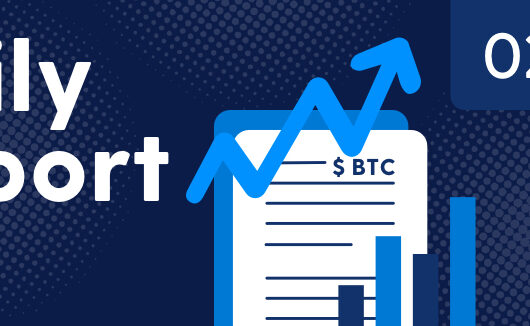The week in review: 76% crypto miners use renewables within their energy mix

Between bitcoin’s 67-day streak above $10,000 and Ethereum miners’ new $166m fee record, the crypto world has been anything but boring this week. Elsewhere, blockchain is getting a boost down under as the Aussie government earmarks $5m in DLT development, and Ripple’s XRP has received the nod of approval from the World Economic Forum.
Keep reading for more on this week’s biggest headlines.
Bitcoin sets new record: 67 straight days closing above $10,000
Bitcoin closed yesterday at a price of $10,623.33, hitting a new record of 67 days closing above $10,000. The previous record – a 62-day streak – lasted from 1 December 2017 through 31 January 2018, when bitcoin reached its all-time high of just above $19,9000 on Coinbase.

(Above: Bitcoin’s historical price data from 1 July to 1 October 2020. Source: CoinMarketCap)
Volatility this time has been significantly lower, though. Bitcoin has traded within a fairly narrow range between $10,000 and $12,500 throughout this run, according to Coin Metrics, with the 180-day volatility for the leading crypto dropping by a staggering 41% in September. Is this a sign of maturity?
Ethereum miners record a whopping $166m in September fees
The rise of DeFi has had Ethereum miners living la vida loca as they recorded their highest-ever earnings in September 2020, according to data from on-chain analytics platform Glassnode.
Increased network and individual smart contract activity lead to higher rewards for miners as users bid higher to get their transactions executed sooner.
#Ethereum miners made a total of $166 million from transaction fees in September – a new ATH.
That’s an increase of 47% compared to the previous record high in August.
In comparison: #Bitcoin miners made $26M from fees – a difference of more than 6x!https://t.co/OkbOGhN4TT pic.twitter.com/f0NB94F9nd
— glassnode (@glassnode) October 1, 2020
Glassnode pointed out that the metric represented an increase of 47% compared to the previous high set in August. And comparatively, bitcoin miners earned only $26 million from fees last month.
Thomas Heller, COO of mining firm Hashr8 confirmed all DeFi-related suspicions: “Because of the DeFi boom, transaction fees and miner earnings were really high.
DeFi tokens are typically traded on decentralised exchanges (DEXs), like Uniswap, which currently holds over $2bn in liquidity, according to tracking site DeFi Pulse. As opposed to centralised exchanges, all DEX transactions are performed on-chain on the Ethereum blockchain. This means miners approve and conduct each DEX trade and therefore gain money on each.
Some critics believe the DeFi bubble is ripe to burst, while miners, on the other hand, are certainly hoping the wild ride will continue. What do you think? Let us know on Twitter.
Curious about Ethereum fees? Check out our explainer on how gas works.
Australian government set to spend $5m on blockchain
This week, the Australian government revealed its $574 million Digital Business Plan, which includes seven-figure grants for distributed ledger technology (DLT) initiatives.
Ahead of next week’s Federal Government budget, Prime Minister Scott Morrison announced the plan includes $4.95 million in support for “two blockchain pilots directed at reducing business compliance costs.” He continued, “The plan supports Australia’s economic recovery by removing out-dated regulatory barriers, boosting the capability of small businesses, and backs the uptake of technology across the economy.”
$480 million has been set aside for various technological initiatives across DLT, including $183 million towards a new digital identity system, and $301 million for developing a single business register.
National Blockchain Lead Chloe White from the Department of Industry, Science, Energy, and Resources said the direct funding is “a huge win for Australian blockchain today”, adding it’s “the biggest investment the government has made in the sector.”
White has been working closely with industry leaders to implement Australia’s National Blockchain Roadmap, and said: “These pilots will complement the National Blockchain Roadmap, which is driving working groups on RegTech, supply chains, cybersecurity and credentialing.”
76% crypto miners use renewables within their energy mix
The amount of energy needed to sustain PoW (proof-of-work) cryptocurrencies, like bitcoin, has always been a contentious topic. But there’s good news – the 3rd Global Cryptoasset Benchmarking Study by the University of Cambridge shows that 76% of crypto miners use electricity from renewable sources as part of their energy mix.
The study revealed that over 39% of the total energy consumed by PoW cryptos comes from renewable energy sources. This is a stark contrast with a previous study by the university which found that only 28% came from renewable energy. In 2018, 60% of miners used renewable energy sources as part of their energy mix.
According to the study, hydroelectric power is the most common source of energy, with almost 62% of miners reported to be using it. Coal and natural gas come in second and third, at 38% and 36% respectively. Wind, oil and solar are the three other common sources.
Interestingly, the report notes that miners from the Asia-Pacific region contribute almost 77% of the bitcoin hash power but use the lowest amounts of renewable energy sources. And while North America adds only 8% of the total hash power, 63% of the energy consumed comes from renewables.
World Economic Forum names XRP as “most relevant asset in CBDC space”
The World Economic Forum (WEF) has called Ripple’s native currency, XRP the most relevant cryptocurrency in the emerging central bank digital currency (CBDC) space.
In a report published earlier this year, the WEF said central banks and government agencies are examining the potential of CBDCs to alleviate perennial global financial issues like financial inclusion and payment systems’ stability.
Despite having drawn a clear line in the sand between CBDCs and cryptocurrencies, the WEF named XRP as the most relevant crypto in the wholesale CBDC space for inter-bank payments and settlements.
In a recent blog, Ripple said central banks around the world are racing against one another to develop their own CBDCs and explained how they could instead leverage XRP to facilitate and support the use of CBDCs.
Do you think your country will opt for its own CBDC, or will they take Ripple up on its advice? Let us know on Twitter.
 Discover
Discover Help Centre
Help Centre Status
Status Company
Company Careers
Careers Press
Press


